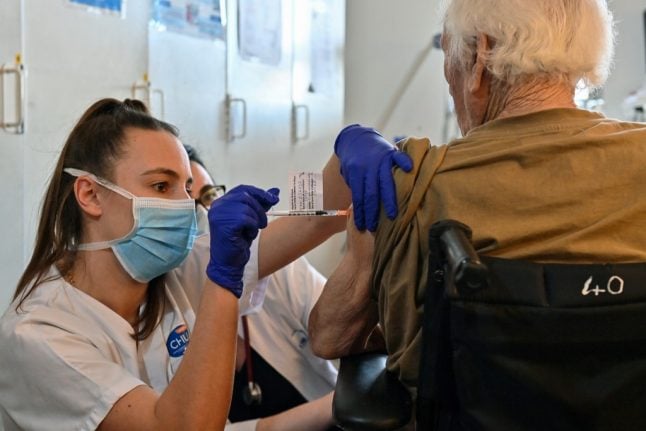France's drive has seen only 7,000 people immunised since December 27th, compared with hundreds of thousands given a vaccine in Germany within the same timespan and over 1.3 million in the UK, which started earlier.
The campaign in the EU is so far solely using the Pfizer-BioNTech vaccine – though a vaccine from US firm Moderna was approved by a watchdog Wednesday and the bloc is keen to bring other vaccine sources online.
But a vaccine developed by France's Sanofi and Britain's GSK may only be ready later in the year due to delays and will still need approval.
“The vaccine strategy cannot be based on a single vaccine. Hence the importance of having done this on a European level which guarantees us access to at least six vaccines,” Europe Minister Clément Beaune told CNews television.
READ ALSO: France to launch online platform so people can sign up for Covid-19 vaccine
Allegations have been aired in Germany by leftwing politicians, but also by the hugely influential mass circulation Bild daily that France pressured the EU to order fewer doses of the Pfizer-BioNTech vaccine to help Sanofi.
In comments late Tuesday, Beaune described such claims as “unacceptable and false”.
“It is absurd to pit countries and labs against each other, all countries need all vaccines and to vaccinate as many people as possible by summer.”
“Isolated strategies can be a temptation in the short term, but they are ineffective over time,” he said.
'Mauricette syndrome'
The French government on Tuesday vowed to drastically speed up vaccinations, notably with a change of strategy to include health workers over 50, as well as residents of care homes.
But this has not dampened criticism of the laggardly rollout, a problem compounded by high levels of scepticism in France about vaccines.
Government spokesman Gabriel Attal on Wednesday confirmed reports that global management consultants McKinsey & Company have been hired to provide “logistical and strategic advice” to French authorities on the vaccine campaign.
READ ALSO: How France is changing its Covid-19 vaccine strategy after anger at slow start
Reaffirming pledges of a faster pace, he said some 500 vaccination centres outside hospitals would be set up in France within two weeks.
France would have 1 million Pfizer-BioNTech doses by Wednesday evening and then would be getting 500,000 every week, he added.
Prime Minister Jean Castex is due to speak at a press conference late on Thursday and, with little chance of restaurants and cultural events reopening in France this month, Attal vowed he would provide as “much visibility as possible”.
READ ALSO: What can we expect from the French government's Covid-19 announcement?
The slow rollout has proved a massive embarrassment for the government, prompting opposition claims of a fiasco, even at a time when France is seeing lower infection rates than Germany or the UK.
A widely-shared internet meme Wednesday mocking the government showed a graphic with the large numbers vaccinated elsewhere while France had only given the jab to “Mauricette”, a care home resident who was the first French person to be vaccinated.
The small print: before anyone accuses me of “French bashing”, a French person sent me this and it is meant to be light-hearted though of course COVID and vaccinations are serious matters. (Mauricette, aged 78, was the first recipient of the vaccine in France.) pic.twitter.com/yOkcTLmito
— Kim Willsher (@kimwillsher1) January 6, 2021
The Canard Enchainé weekly was the latest outlet Wednesday to report that President Emmanuel Macron is furious over the slow rollout, citing him as yelling at a meeting Monday “enough of the Mauricette syndrome”



 Please whitelist us to continue reading.
Please whitelist us to continue reading.
Member comments